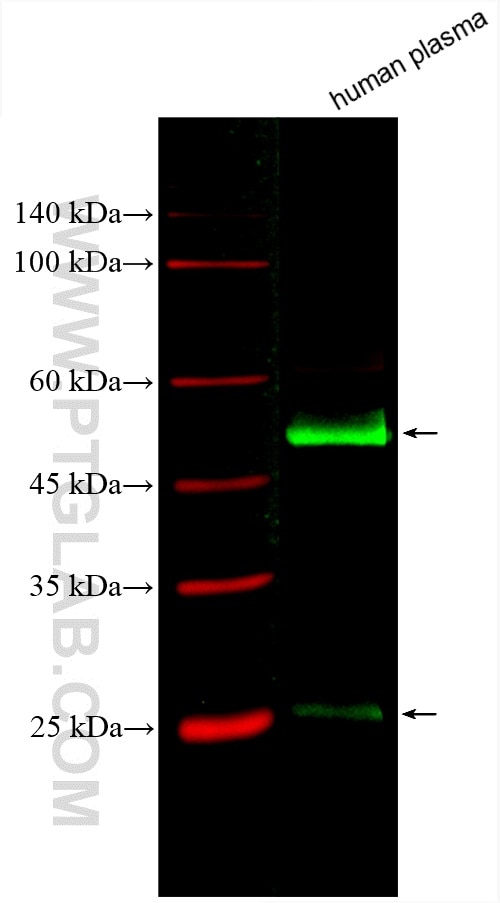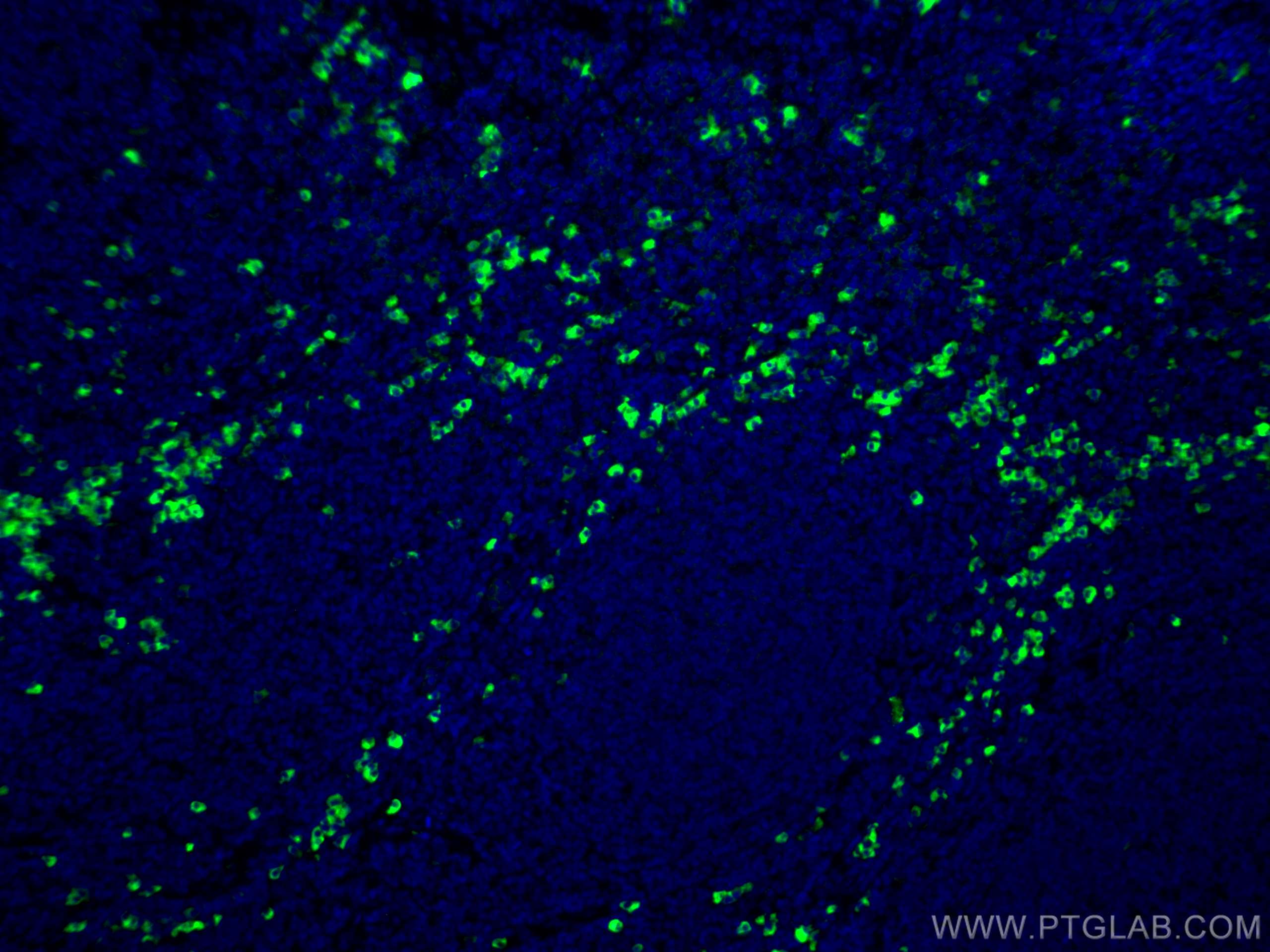Tested Applications
| Positive WB detected in | human plasma |
| Positive IF-P detected in | human tonsillitis tissue |
Recommended dilution
| Application | Dilution |
|---|---|
| Western Blot (WB) | WB : 1:1000-1:4000 |
| Immunofluorescence (IF)-P | IF-P : 1:50-1:500 |
| It is recommended that this reagent should be titrated in each testing system to obtain optimal results. | |
| Sample-dependent, Check data in validation data gallery. | |
Published Applications
| IF | See 3 publications below |
Product Information
CL488-10284 targets Rabbit Anti-Human IgG in WB, IF-P applications and shows reactivity with human samples.
| Tested Reactivity | human |
| Cited Reactivity | human |
| Host / Isotype | Rabbit / IgG |
| Class | Polyclonal |
| Type | Antibody |
| Immunogen |
Peptide Predict reactive species |
| Full Name | Rabbit Anti-Human IgG |
| Calculated Molecular Weight | 155 kDa |
| Observed Molecular Weight | 25 kDa, 50 kDa, 150 kDa |
| Gene Symbol | |
| Gene ID (NCBI) | |
| RRID | AB_2918970 |
| Conjugate | CoraLite® Plus 488 Fluorescent Dye |
| Excitation/Emission Maxima Wavelengths | 493 nm / 522 nm |
| Form | Liquid |
| Purification Method | Antigen affinity purification |
| Storage Buffer | PBS with 50% glycerol, 0.05% Proclin300, 0.5% BSA, pH 7.3. |
| Storage Conditions | Store at -20°C. Avoid exposure to light. Stable for one year after shipment. Aliquoting is unnecessary for -20oC storage. |
Background Information
This rabbit poly clonal antibody recognizes the human IgG.
Protocols
| Product Specific Protocols | |
|---|---|
| IF protocol for CL Plus 488 Rabbit Anti-Human IgG antibody CL488-10284 | Download protocol |
| WB protocol for CL Plus 488 Rabbit Anti-Human IgG antibody CL488-10284 | Download protocol |
| Standard Protocols | |
|---|---|
| Click here to view our Standard Protocols |
Publications
| Species | Application | Title |
|---|---|---|
Cell Spatial transcriptomic landscape unveils immunoglobin-associated senescence as a hallmark of aging | ||
Oxid Med Cell Longev Adropin Improves Radiation-Induced Myocardial Injury via VEGFR2/PI3K/Akt Pathway | ||
Nat Microbiol A single-cell transcriptomic atlas reveals senescence and inflammation in the post-tuberculosis human lung | ||






